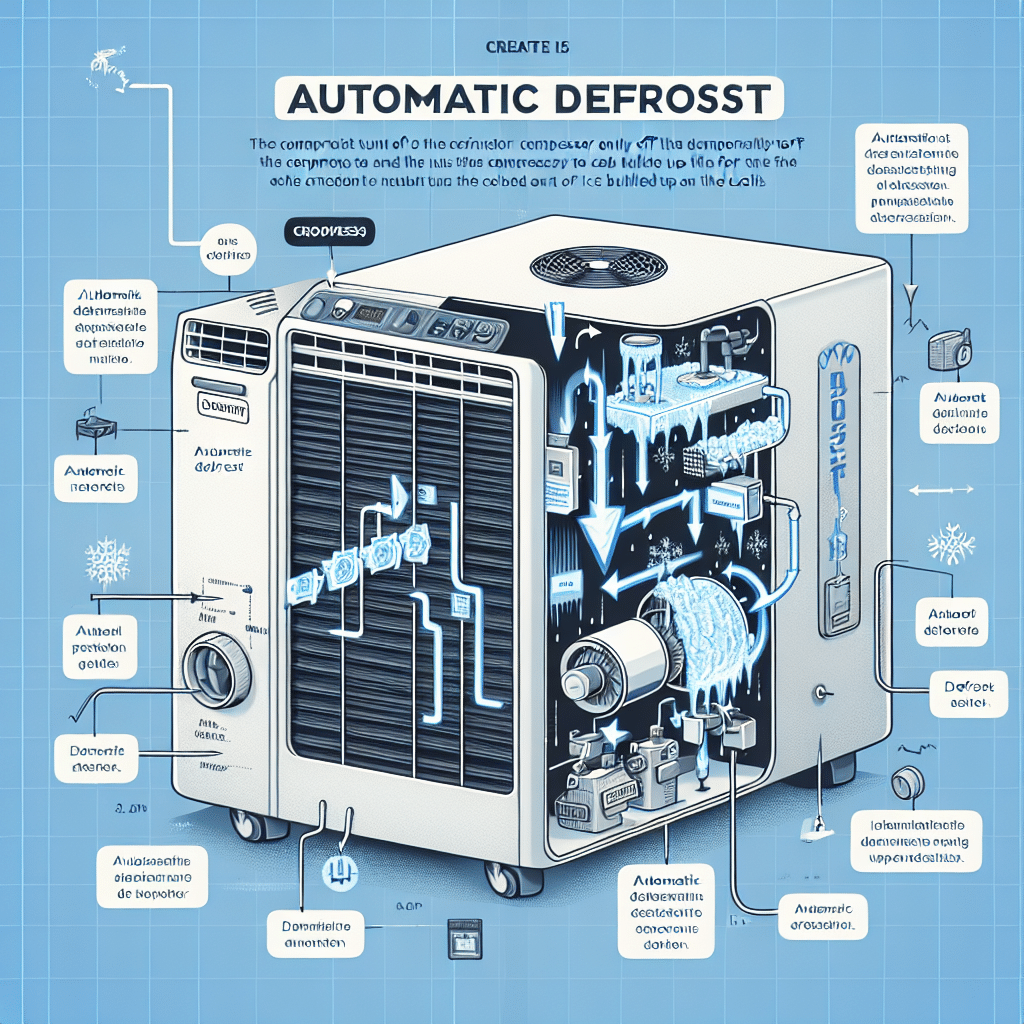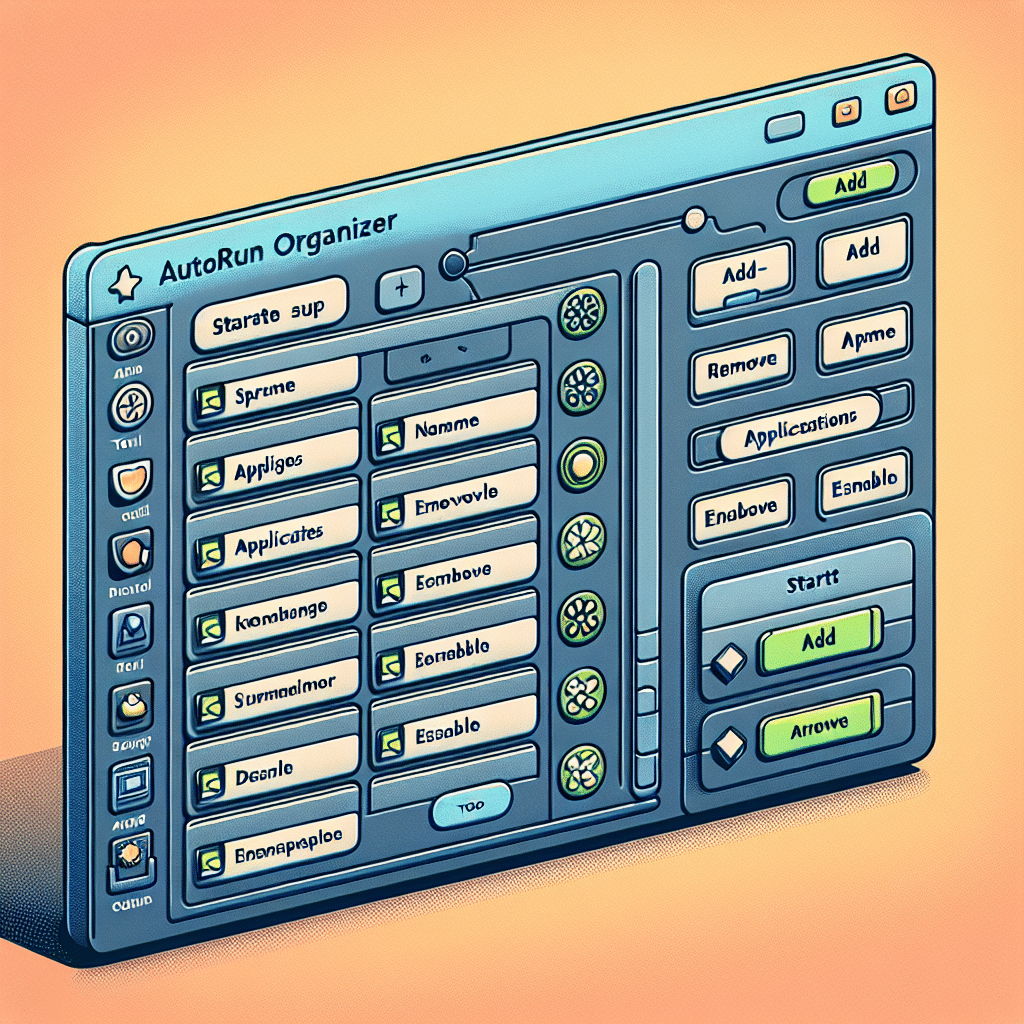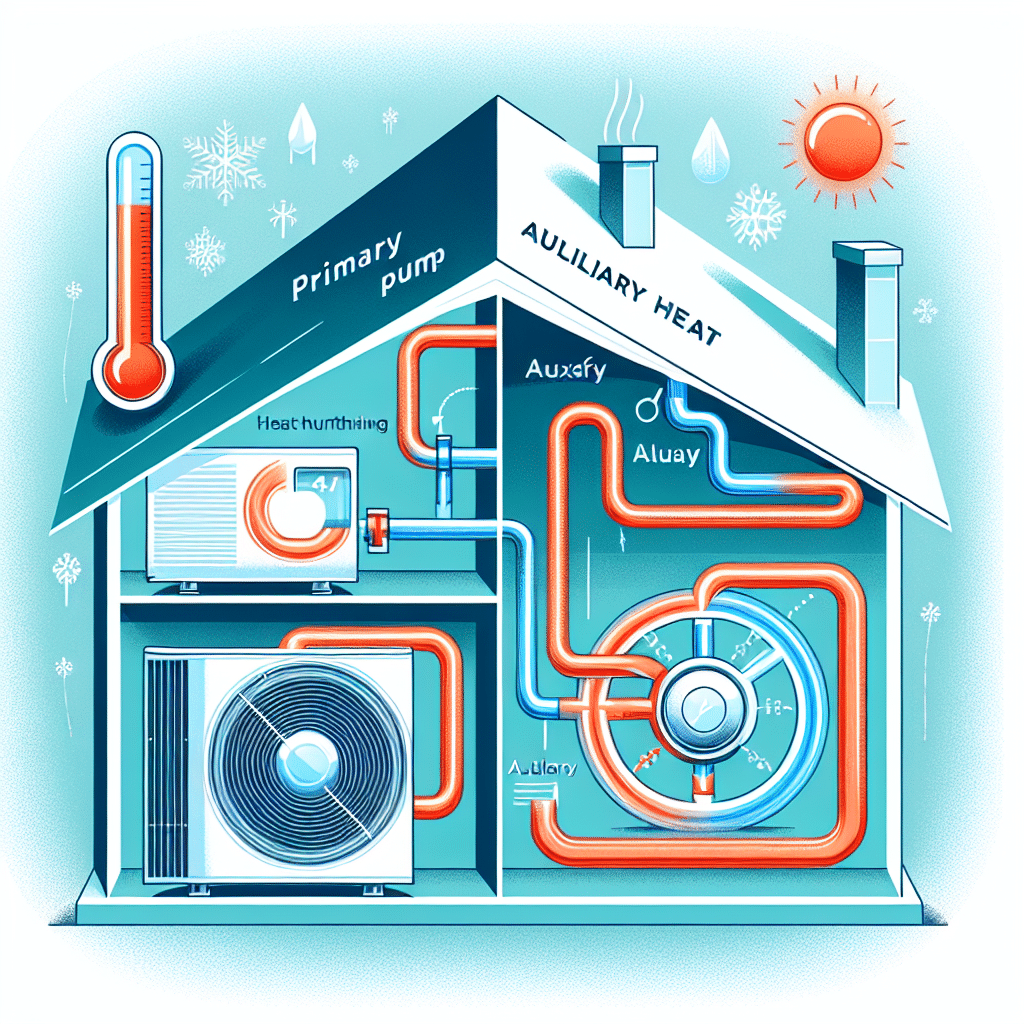Introduction
Automatic defrost on a dehumidifier is a critical feature designed to prevent ice buildup on the unit’s coils, ensuring optimal performance and longevity. When humidity levels are high, moisture can condense and freeze on the cooling coils, impeding air flow and reducing efficiency. An automatic defrost system continuously monitors the temperature and humidity, activating a defrost cycle when necessary. This not only enhances the dehumidifier’s energy efficiency but also extends its operational lifespan by preventing mechanical strain from ice accumulation. Understanding this feature can help you select the right dehumidifier for your needs, ultimately providing a healthier indoor environment.
Understanding Dehumidifiers and Their Functionality
Dehumidifiers play a vital role in managing indoor humidity levels. By extracting moisture from the air, they help prevent issues such as mold growth, dust mites, and structural damage in your home. Before delving into automatic defrost features, it’s essential to grasp how a dehumidifier operates.
How Dehumidifiers Work
The basic functionality of a dehumidifier involves three essential phases: air intake, condensation, and air expulsion. As warm, humid air is drawn into the unit, it passes over cold coils, causing moisture in the air to condense into water droplets. This water is then collected in a tank or expelled through a drain, and the now-drier air is reheated and returned to the room.
What is Automatic Defrost?
Automatic defrost is a built-in system designed to regulate the temperature of the evaporator coils to prevent freezing. In regions with cooler climates or during colder months, the ambient air can be low enough that the moisture on the coils freezes rather than condenses. This can lead to decreased performance and even damage to the unit.
How Automatic Defrost Works
The automatic defrost mechanism typically works through a combination of temperature sensors and a defrost control board. Here’s how it unfolds:
- Temperature Monitoring: The dehumidifier is equipped with sensors that continually monitor the temperature of the coils.
- Defrost Activation: When the sensors detect that the temperature has dropped to the freezing point, the automatic defrost system activates. This may involve temporarily halting the dehumidification process.
- Heating Mechanism: To thaw the ice, the system employs a heating mechanism that raises the temperature of the coils. This heat causes the ice to melt, allowing the dehumidifier to resume its primary function efficiently.
The Benefits of Automatic Defrost
Understanding and appreciating the advantages of automatic defrost systems is crucial when considering a dehumidifier. Here are several key benefits:
Enhanced Efficiency
By preventing ice buildup, the automatic defrost system ensures that the dehumidifier operates smoothly and consistently. This leads to enhanced energy efficiency, allowing the unit to use less power while performing at its best.
Extended Lifespan
Regular ice accumulation can lead to increased wear and tear on the unit. The automatic defrost feature helps mitigate this issue, contributing to the overall longevity of the dehumidifier.
Improved Air Quality
Maintaining efficient moisture removal ensures that indoor air remains dry and comfortable. This helps reduce mold growth, allergens, and odors, leading to a healthier living space.
Types of Automatic Defrost Systems
Not all automatic defrost systems are created equal; they vary depending on the dehumidifier model and brand. Here’s a breakdown of the main types:
Timed Defrost
Some models utilize a timed defrost cycle, where the system defrosts at predetermined intervals regardless of ice accumulation. This can be sufficient for some household conditions but might not be optimal for extremely humid or cold environments.
Demand-Based Defrost
Demand-based systems activate defrost only when necessary, relying on temperature sensors to determine when ice is forming. This is typically more efficient and can make a noticeable difference in energy consumption and performance.
How to Choose a Dehumidifier with Automatic Defrost
When selecting a dehumidifier, consider the following factors to ensure you choose one with effective automatic defrost capabilities:
Environment
Evaluate your home’s temperature and humidity levels. In colder climates or unheated spaces, opt for a dehumidifier with a reliable automatic defrost feature to ensure optimal performance.
Capacity
Dehumidifiers come in various capacities. Heavy-duty models may include more advanced defrost systems, catering to larger spaces or commercial applications.
Brand and Model Reputation
Research brands and specific models. Look for reviews that highlight the effectiveness of their automatic defrost systems and overall performance in humid conditions.
Common Misconceptions About Automatic Defrost
There are several misconceptions surrounding automatic defrost systems in dehumidifiers. It’s essential to clarify these misunderstandings:
Misconception 1: All Dehumidifiers Have Automatic Defrost
Not all dehumidifiers come with automatic defrost features. Many budget models may lack this capability, leading to potential issues in colder climates.
Misconception 2: Automatic Defrost Is Energy Intensive
While it’s true that a defrost cycle consumes energy, modern demand-based systems are designed to activate only when necessary, minimizing additional power usage and ensuring efficiency.
Misconception 3: Defrosting Eliminates the Need for Maintenance
Even with automatic defrost, regular maintenance remains critical. Users should still clean filters and check for proper drainage to ensure optimal performance.
FAQs About Automatic Defrost on Dehumidifiers
What is the main purpose of automatic defrost in a dehumidifier?
The primary purpose of automatic defrost is to prevent ice buildup on the coils, ensuring that the dehumidifier operates efficiently and prolonging its lifespan.
Can I still use a dehumidifier in a cold environment without automatic defrost?
While you can use a dehumidifier in cold environments, models without automatic defrost may encounter performance issues due to ice accumulation on the coils.
How often does automatic defrost typically activate?
The activation frequency of automatic defrost depends on the specific model and environmental conditions. Demand-based systems will only activate under conducive conditions for ice formation.
Conclusion
Understanding the concept and importance of automatic defrost in dehumidifiers is essential for making informed decisions about humidity control in your home or commercial spaces. By recognizing its role in preventing ice buildup, enhancing efficiency, and extending the lifespan of the unit, you can ensure optimal performance and enjoy a healthier indoor environment.



